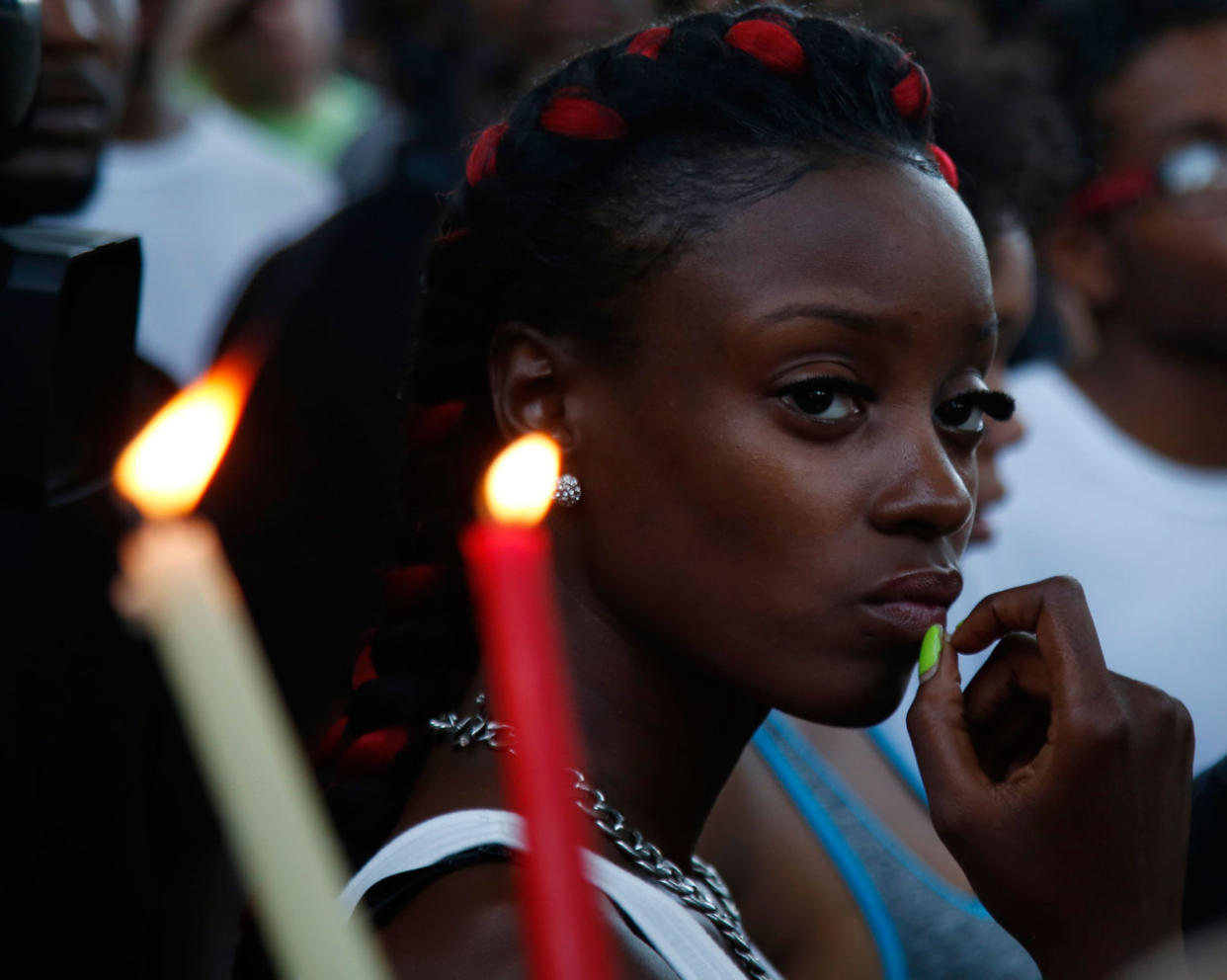Trump tells African-Americans 'I'm with you,' calls for 'law and order'

WEST BEND, Wis. — Campaigning in the suburbs of Milwaukee, a city stricken by violent protests over the fatal police shooting of an armed black man earlier this week, Donald Trump made a direct appeal to African-American voters, arguing Democratic policies have undermined wealth, jobs and safety in the nation’s inner cities and that, as president, he would rebuild them.
The Republican presidential nominee repeatedly accused his Democratic rival Hillary Clinton of “taking for granted” and “taking advantage of” black voters, calling her the “personification of special interest corruption” who cares only about donors and not struggling Americans.
“We reject the bigotry of Hillary Clinton, (who) panders to and talks down to communities of color and sees them only as votes,” Trump told a crowd of a few thousand, mostly white, supporters. “That’s all they care about, not as individual human beings worthy of a better future.”
“The Democratic party,” he added, “has failed and betrayed the African-American community.”
At the same time, Trump repeatedly cast himself an agent of change who is running to represent all Americans — especially those living in communities like Milwaukee that have been affected by violent protests. He called for “law and order” to be restored and vowed that as president he would do so.
Slideshow: Violent protests erupt in Milwaukee >>>
He pointedly accused Clinton of being an “anti-police candidate,” and suggested that what he characterized as her failure to more strongly back law enforcement was hurting those who live in crime-stricken communities.
“The main victims of these riots are law-abiding African-American citizens living in these neighborhoods,” he said. “It’s their homes. It’s their schools and communities which will suffer the most as a result. There’s no compassion in tolerating lawless conduct for anyone.”
At the same time, Trump, who currently polls in the low single digits among black voters, repeatedly cast himself as a voice of compassion and reason and the only person who can bring “real change” to inner cities.
“I am running to listen to your voice, to hear the cries for help from so many people in our nation,” the celebrity businessman said. “The quiet voices in our society, not the loudest demonstrators, need to have their demands heard.”
Mocking Clinton’s campaign slogan “I’m With Her,” Trump repeatedly declared, “I’m with you.”
The late-night remarks, which began well after 10 p.m. ET, marked Trump’s second scripted speech of the week. In Wisconsin, a state where he trails Clinton by double digits, the GOP candidate had been scheduled to hold one of his raucous rallies. But plans abruptly changed Tuesday morning as Trump aides announced their boss would deliver more focused remarks, timed to the protests in Milwaukee.
While Trump echoed many themes he’s touted before — including trashing Clinton as a “corrupt” politician and pledging to make “America First” — the GOP candidate’s cadence and language were notably different. Though he trashed Clinton for supporting immigration reform — suggesting it’s another vehicle for taking away jobs from struggling black Americans — he presented his proposals in a less incendiary way and seemed more determined to stay on script.
At one point, Trump, as he does during nearly every rally, attacked Clinton for the email scandal that has dogged her campaign, suggesting she had put the country at risk. In response, supporters broke into a chant of “Lock her up” — a chant that has become a mainstay of Trump rallies after the Republican National Convention. But the candidate, who usually pauses, simply continued on with the speech.
While it was clearly a speech aimed at boosting support among blacks, Trump offered no specific proposals to help poverty-stricken neighborhoods. He did unveil a few new, if unrelated, ideas, including a promise to ban the spouses of those serving in his administration from earning income from paid speeches. He also said he would make aides sign a pledge blocking them from earning income on the speech circuit for five years after they left the government.
“No one will be above the law,” Trump said.

